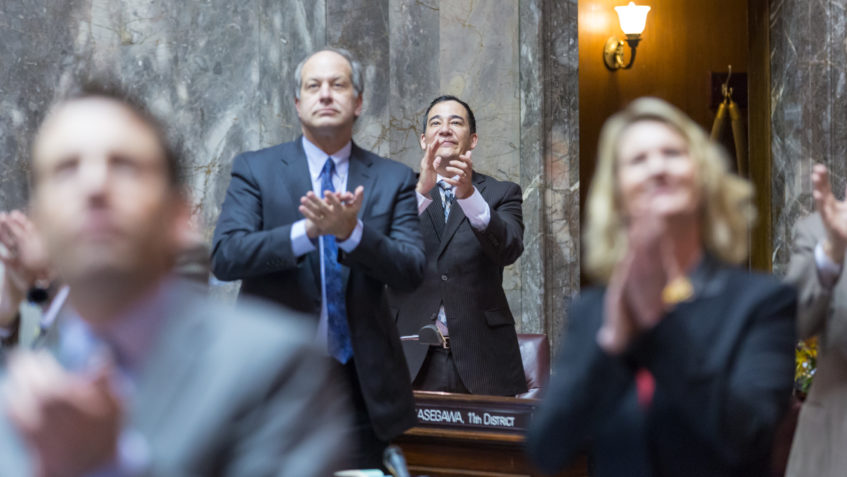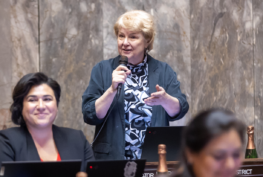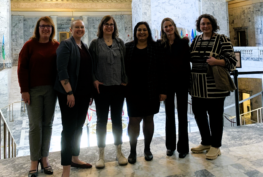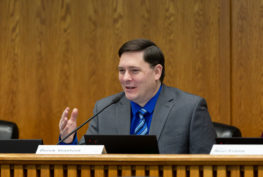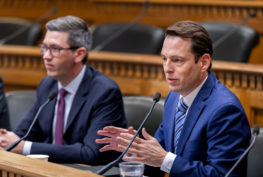OLYMPIA – The Senate passed the Transportation budget Sunday with unanimous support.
ESHB 1160 will now head to the Governor for his signature.
“This budget addresses the transportation needs of our state,” said Sen. Steve Hobbs, chair of the Senate Transportation committee. “This was a good, bipartisan effort to keep our promises and move our state forward.”
There are several highlights and new investments made as part of the $9.8 billion, two year plan including the continued delivery of projects first adopted as part of the 2015 Connecting Washington transportation package.
New investments include a $35 million investment in the creation of a project office and pre-design work to continue the work for the replacement of the Interstate 5 Bridge across the Columbia River. This will begin the reevaluation of scope, schedule, and budget for a reinvigorated bi-state effort.
Additional investments include providing $35 million in savings and $20 million in toll revenue to advance the design and complete right-of-way acquisition for the I-405 north end completion. This along with the funding provided by SB 5825, will be sufficient to complete this project. Several projects had funding advanced including $40 million for the SR 167/SR 509 Puget Sound Gateway project and $17 million for I-90 Snoqualmie Pass.
The Department of Transportation and the City of Tacoma are partnering in clean-up efforts to address the clearing of debris, hazardous material and implementing safety improvements along state highways within Tacoma city limits. This combined investment of $1.015 million will improve public health and safety and remove debris from right-of-ways.
Ferry investments include providing for the start of building a new 144-car hybrid electric vessel as well as the conversion of one existing ferry. The ferries division was provided $495,000 for the planning work needed to prepare for hybrid-electric vessel terminal charging investments. The Colman Dock project in Seattle and the Mukilteo terminal also received additional funding to keep those projects moving forward. Also included is $160,000 for a vessel noise reduction study aimed at helping protect the endangered southern resident orcas.
The Commute Trip Reduction program received a $1 million investment for a new first/last mile transportation demand management pilot program and $1 million for the continuation of a small businesses transit pass incentive.
With continued issues with maintaining a stable Washington State Patrol force $4.2 million was funded for a third cadet class and a position was funded for a recruitment and retention captain position.
“I’m proud of the bipartisan cooperation and outcome of this budget,” Hobbs said. “This is a good budget, but it is a bare-bones budget. Our state has many transportation needs and lack the means to meet them. Fish culverts, replacement of the I-5 bridge in Vancouver, the US 2 Trestle in Snohomish County and many other projects large and small across the state.”

